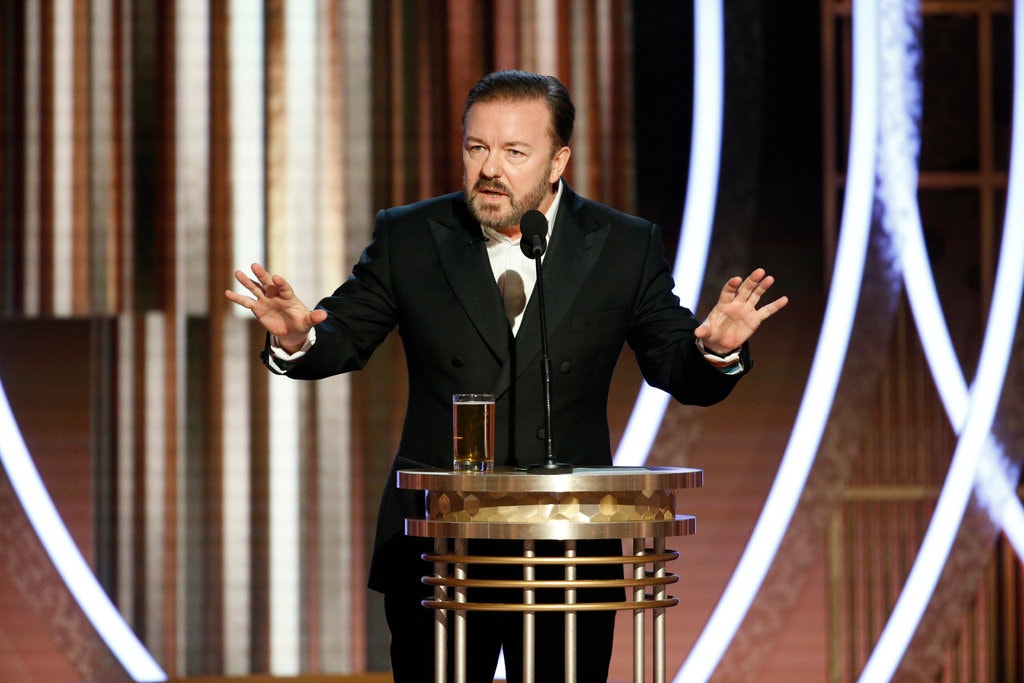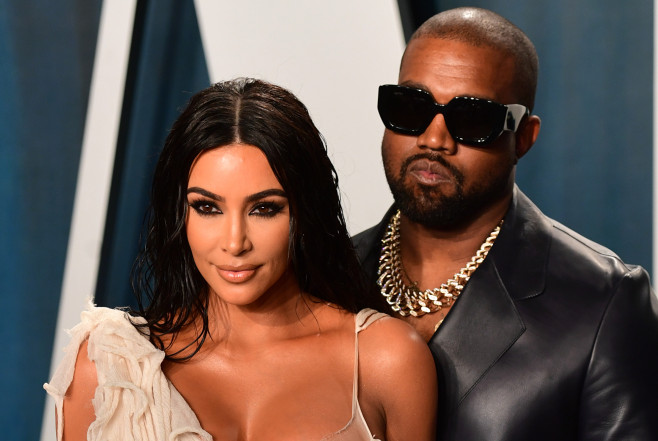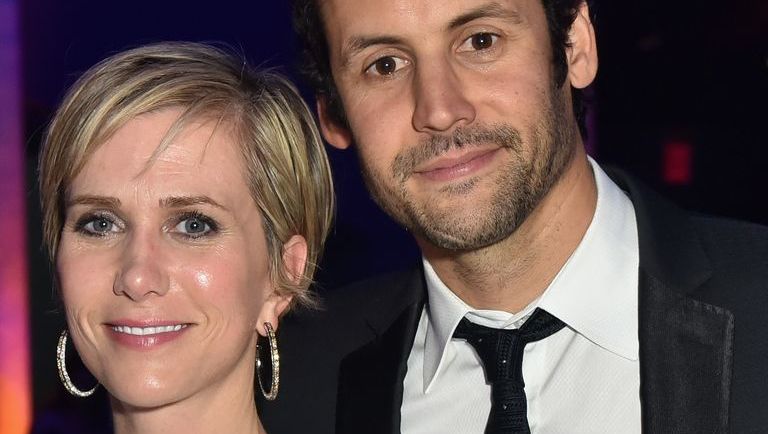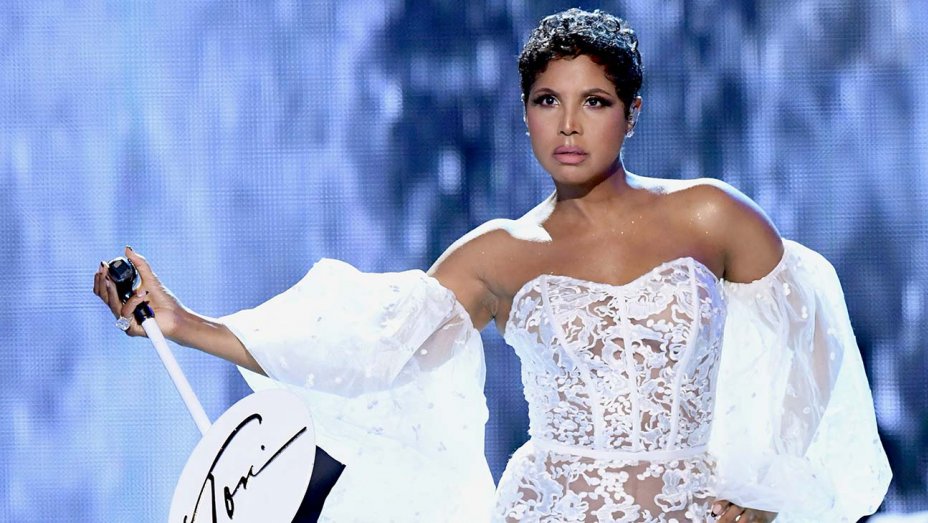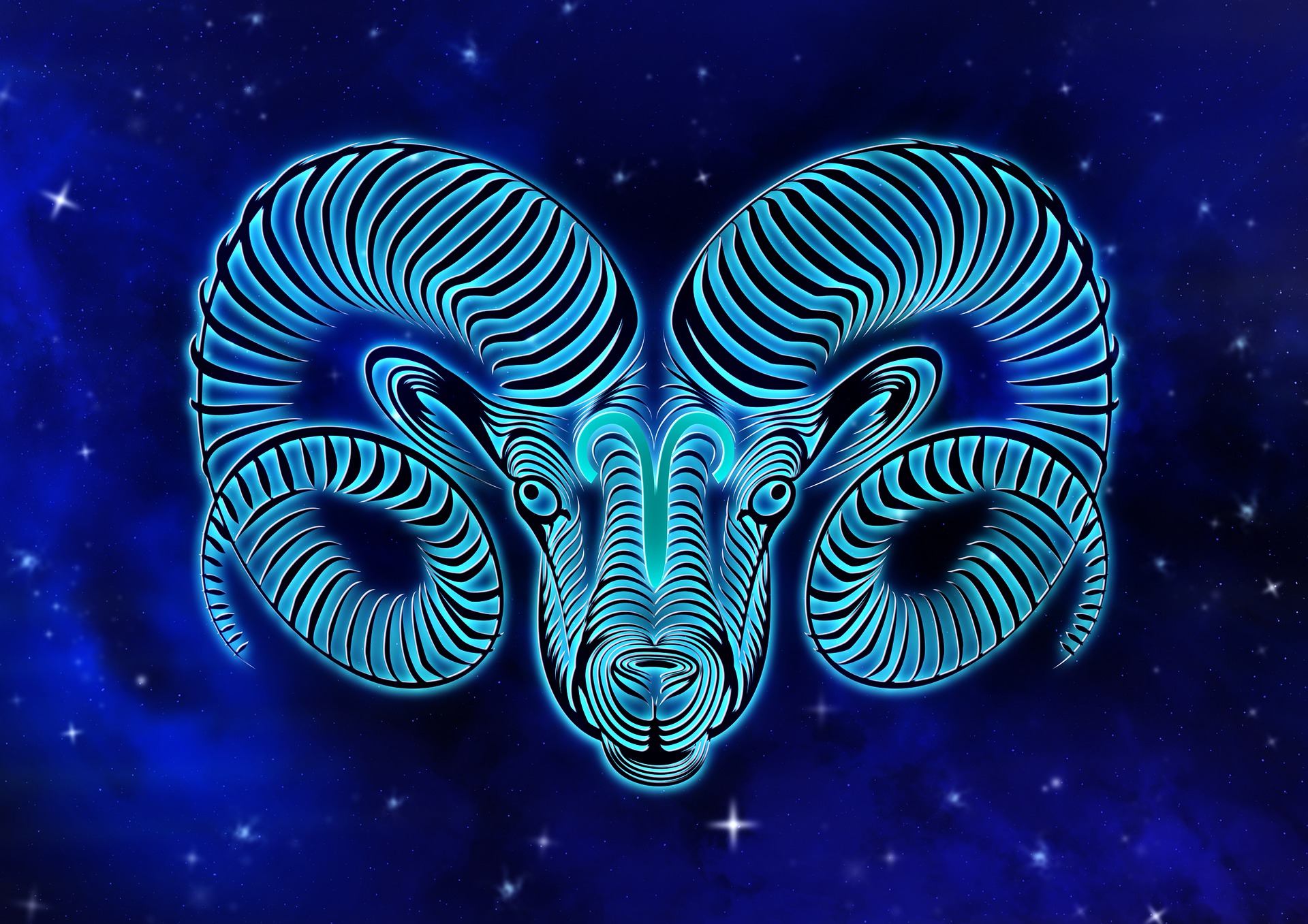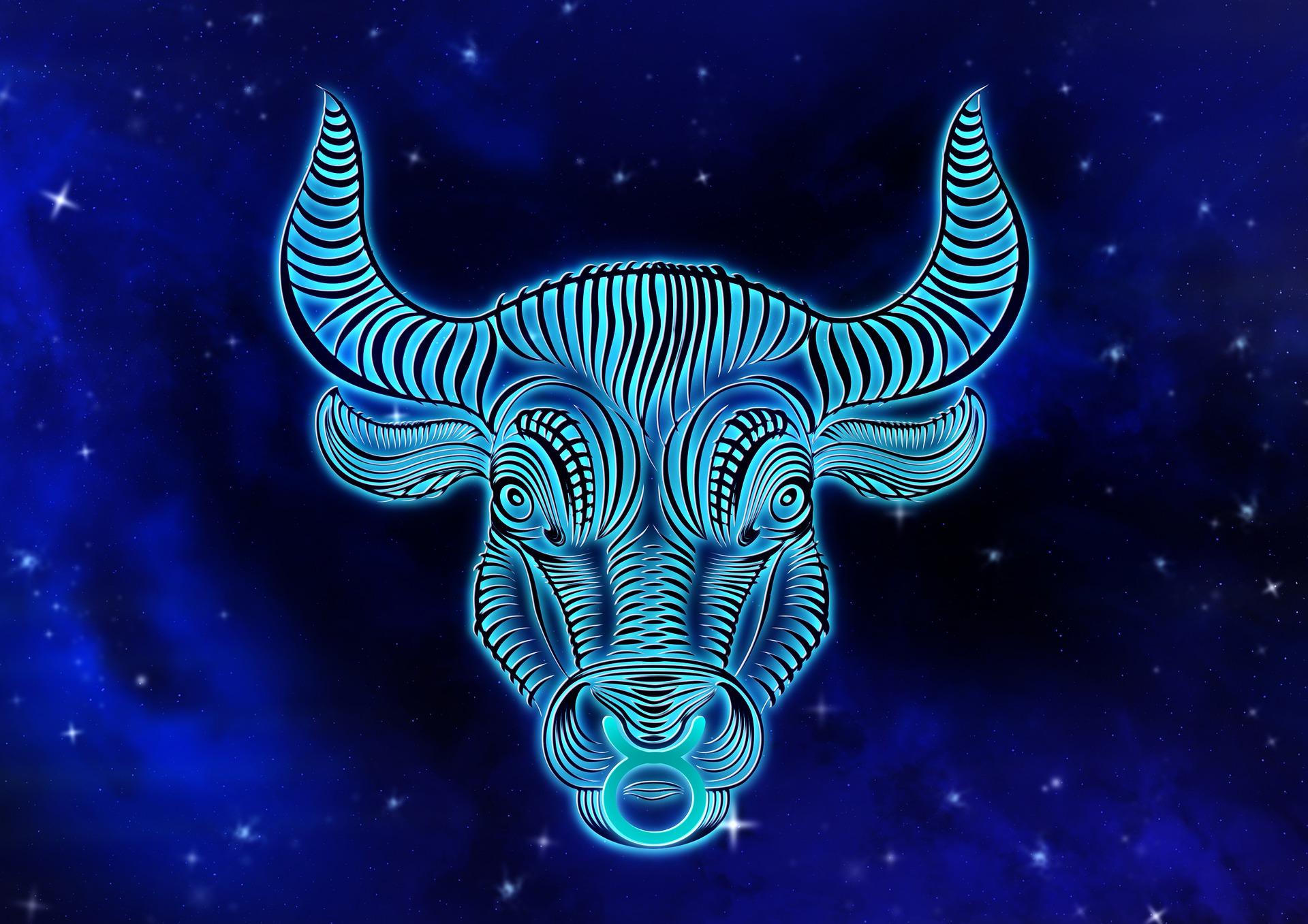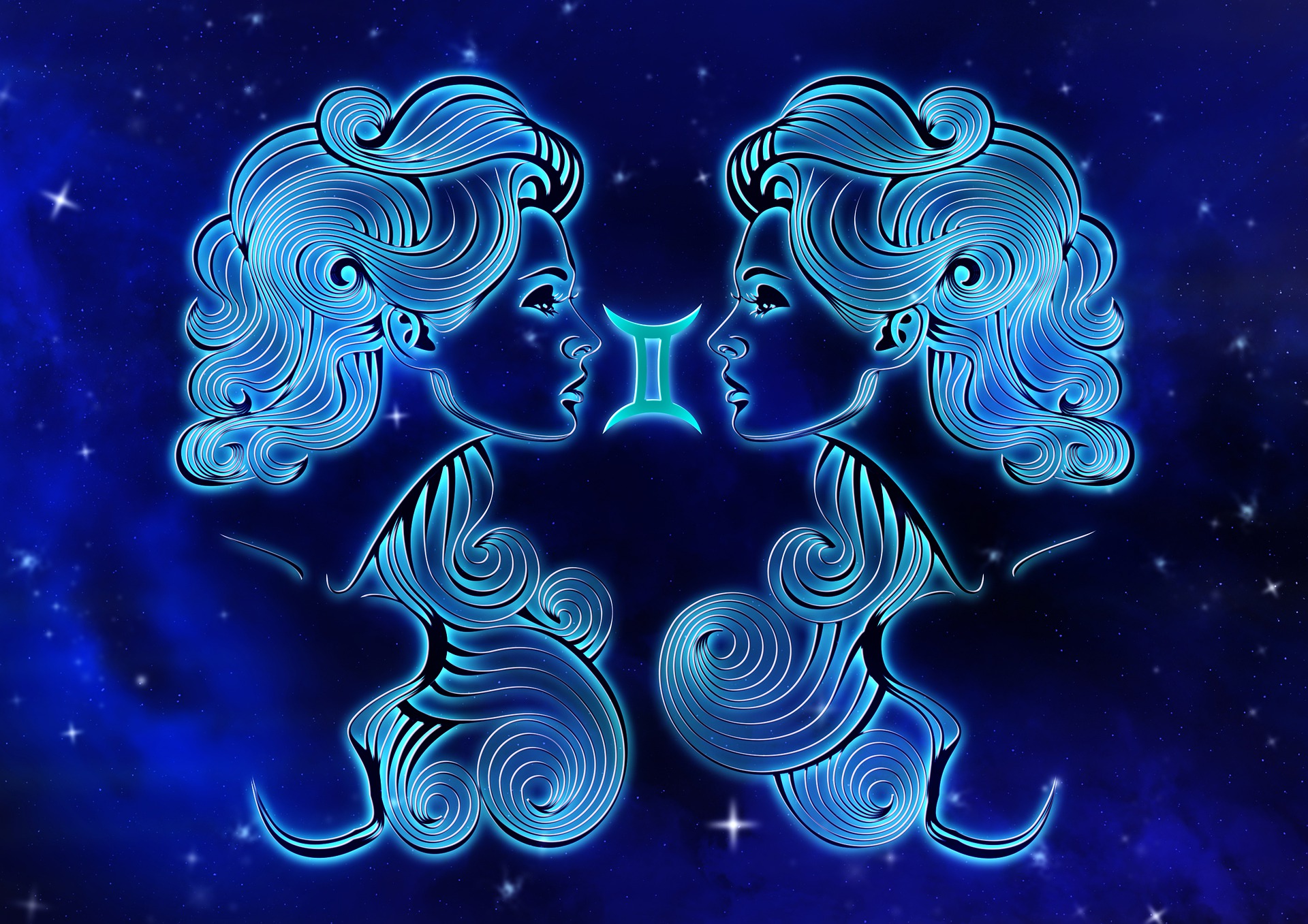Hey, everyone: Did you know that Ricky Gervais doesn’t care?
If you didn’t, you do now. “I don’t care anymore,” he said, kicking off his opening monologue at Sunday’s Golden Globes. “I’m joking: I never did.” Declaring that this would be his final outing as host, he riffed after an awkward joke, “It’s the last time, who cares?” And after a shocked reaction to a punch line declaring that the convicted pedophile Jeffrey Epstein did not kill himself, he told the crowd, “I know he’s your friend. I don’t care.”
It was, perhaps, redundant. The Golden Globes are traditionally the not-caringest of awards galas, a cascade of film and TV awards that rush by on a rapids of champagne bubbles. The awards themselves, voted on by a handful of Hollywood Foreign Press Association members, are best treated with minimal reverence (not that anyone minds being handed one).
Gervais himself doesn’t care about the Globes so much that he was hosting them for the fifth time. He and everyone knew why he was there: to administer Hollywood a mostly consensual lashing, to be the Nihilist-in-Chief, the guy who doesn’t care what anyone thinks. He had a joke about Felicity Huffman’s jail sentence in a college-admissions scandal, and a heavily censored one imagining Judi Dench, of “Cats,” grooming herself in, er, a feline manner.
It was sometimes uncomfortable, but not especially daring. None of Gervais’s jokes were as cutting as, say, when Sacha Baron-Cohen likened Facebook’s Mark Zuckerberg to the protagonist of “Jojo Rabbit” (“a naïve, misguided child who spreads Nazi propaganda and only has imaginary friends”).
Gervais was also, he made clear, the guy who doesn’t care what anyone else cares about, pre-scolding any winners who made political statements by reminding them that they worked for rapacious companies like Apple and Amazon. “You’re in no position to lecture the public about anything,” he said, urging them to accept their statuettes, “thank your agent and your god” and move along.
For their part, the winners seemed not to care much about his not-caring. The comedian Ramy Youssef, picking up the night’s first award for “Ramy,” his Hulu series about a young Muslim man, said, “I’d like to thank my god: Allahu akbar.” Russell Crowe, the best actor in a limited series for Showtime’s “The Loudest Voice,” sent a statement (via the presenter Jennifer Aniston) from bush-fire-stricken Australia urging action against climate change.

The microclimate in the room for the night was breezy with patches of sincerity. Kate McKinnon introduced a warmly funny Ellen DeGeneres, winner of the Carol Burnett award for excellence in television, thanking her for having “jumped into the fire” by coming out as gay and opening up possibilities for gay performers like her.
There were expressions of sympathy for victims of the fires in Australia, fewer about the dire situation between the United States and Iran. (Gervais himself seemed to elliptically comment on the situation by deflecting a cringe-y moment with, “They’re just jokes. We’re all going to die soon.”)
Patricia Arquette of Hulu’s “The Act” connected both news stories, urging her audience (presumably those in swingier districts than the Beverly Hilton) to vote in November. Michelle Williams of “Fosse/Verdon” asked “women 18 to 118” to cast ballots to support reproductive choice.
By the end of the night, even Gervais was advocating, sort of: “Please donate to Australia,” he signed off. “Have a great time. Get drunk. Take your drugs.” Of course, there were limits to the night’s activism. Joaquin Phoenix, accepting for “Joker,” got played off just as he decried the environmental effects of flying private jets to Palm Springs.

But the room truly came together for the Cecil B. DeMille award speech from Tom Hanks, one of Hollywood’s unelected chief executives.
Like DeGeneres’s award, it was a rare moment of the night honoring a mass-market star in an increasingly niche entertainment era. The big television winners, “Succession” and “Fleabag,” are terrific shows, but hardly blockbusters. Arguably the biggest TV hit talked about Sunday night was “The Irishman,” a movie that most of its audience streamed on Netflix.
Fighting tears — he blamed a bad cold — Hanks celebrated filmmaking as a communal effort that depends on the efforts and dedication of everyone down to the last crew member. It was a speech that was just about making movies, and also was about a lot more. If you pull together, put in the work and value everyone’s worth, he seemed to be saying, you can do amazing things. You just need to care.
Image Source:*Paul Drinkwater/NBC, via Associated Press
Source:nytimes.com
